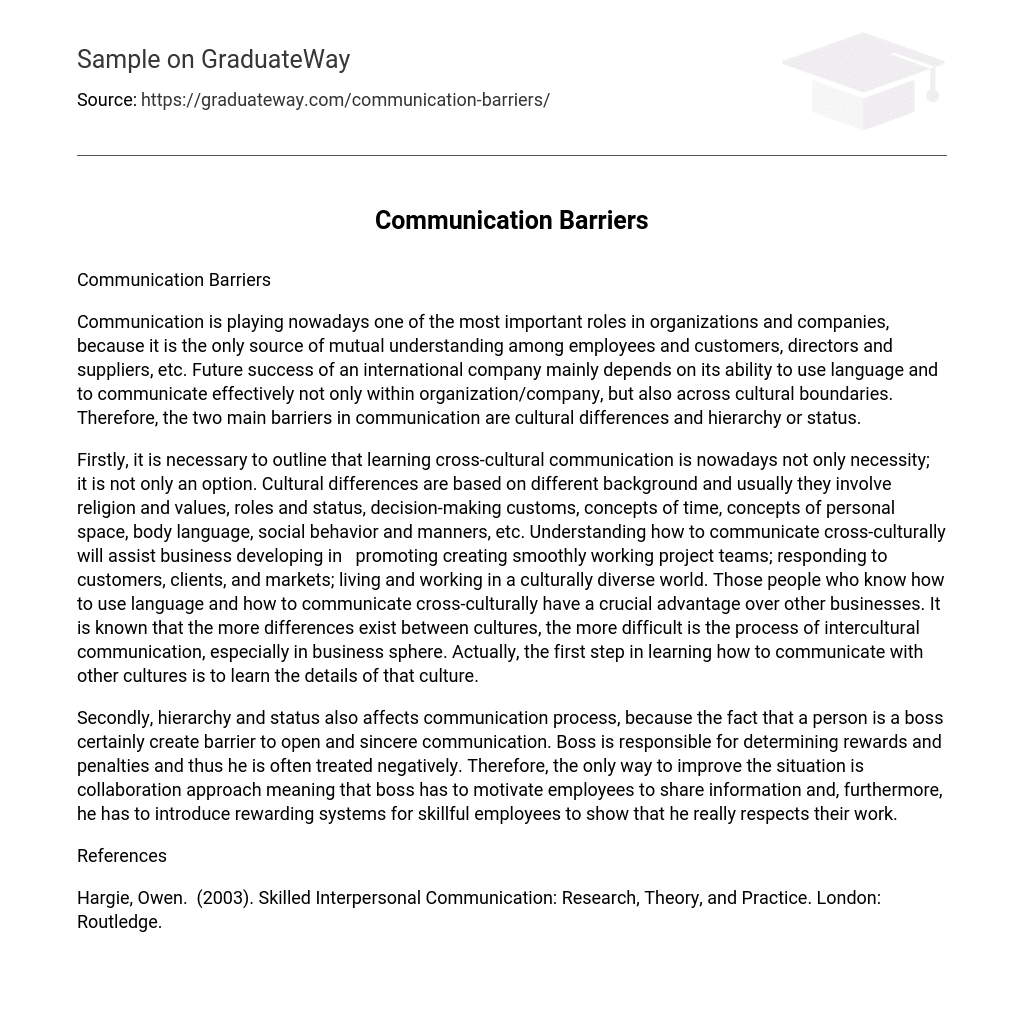Communication plays one of the most important roles in organizations and companies nowadays. It is the only source of mutual understanding among employees, customers, directors, suppliers, etc. The future success of an international company mainly depends on its ability to use language and communicate effectively not only within the organization or company but also across cultural boundaries. Therefore, cultural differences and hierarchy or status are the two main barriers in communication.
Firstly, it is necessary to outline that learning cross-cultural communication is not only a necessity but also an essential option. Cultural differences are based on various backgrounds and usually involve religion, values, roles and status, decision-making customs, concepts of time and personal space, body language, social behavior and manners. Understanding how to communicate cross-culturally will assist businesses in promoting smoothly working project teams; responding to customers, clients and markets; living and working in a culturally diverse world. Those who know how to use language and communicate cross-culturally have a crucial advantage over other businesses.
It is known that the more differences exist between cultures, the more difficult the process of intercultural communication becomes especially in business spheres. Actually, the first step in learning how to communicate with other cultures is to learn about their culture’s details.
Secondly, hierarchy and status also affect the communication process. Being a boss creates a barrier to open and sincere communication because the boss is responsible for determining rewards and penalties, which can lead to negative treatment of employees. The only way to improve this situation is through a collaborative approach. The boss must motivate employees to share information and introduce rewarding systems for skillful employees to show that their work is respected.
References
Hargie, Owen (2003) wrote a book titled Skilled Interpersonal Communication: Research, Theory, and Practice,” which was published by Routledge in London.





